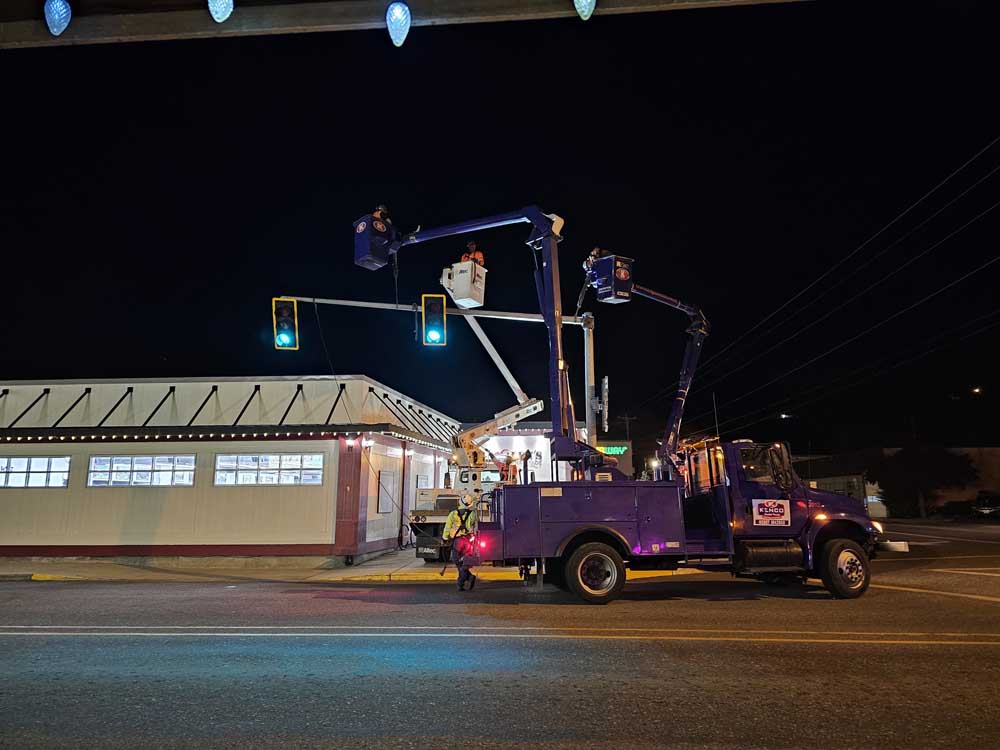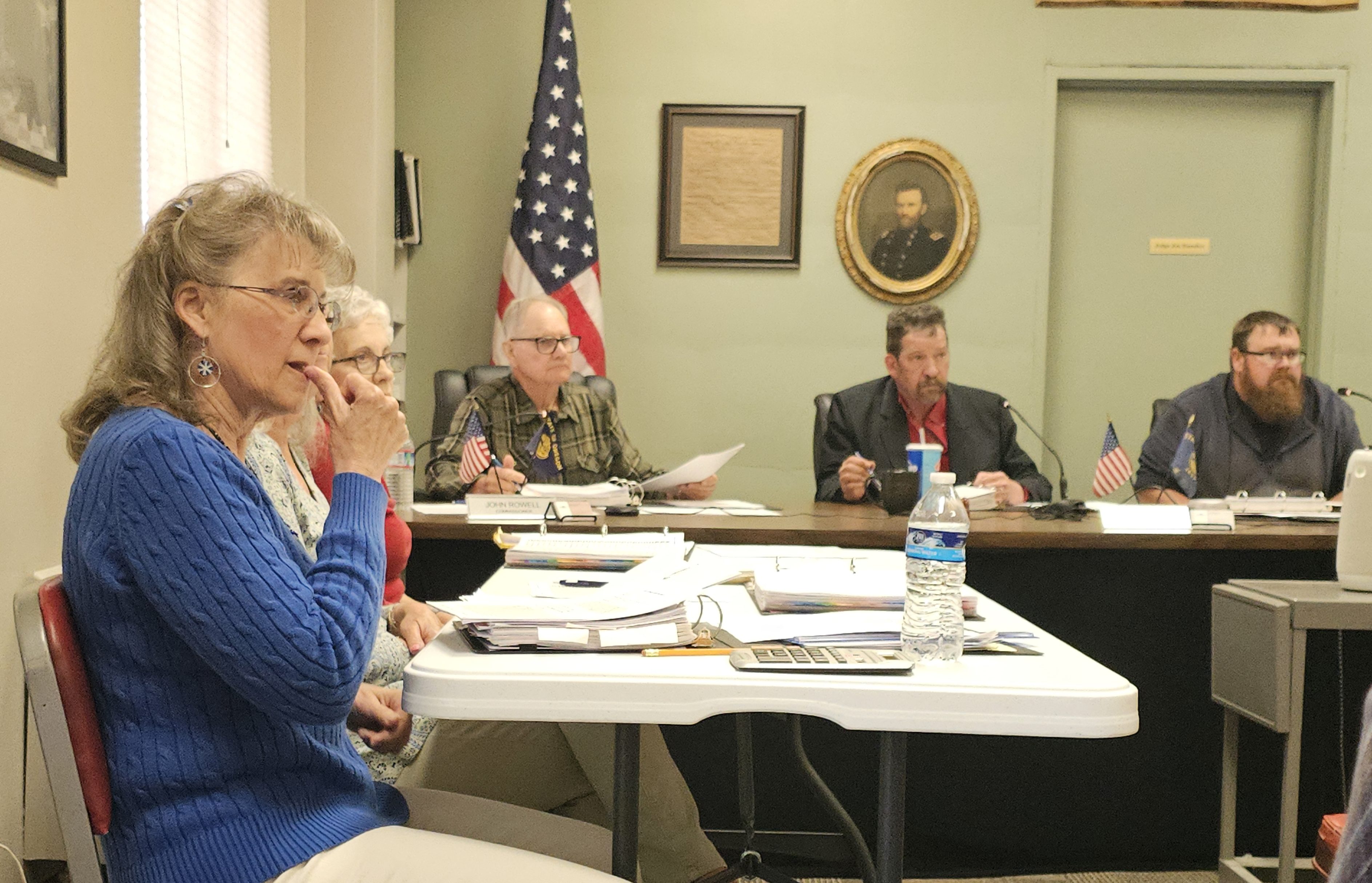HISTORY: Edigers recognized for Century Ranch
Published 10:30 am Thursday, September 26, 2019

- Roger and Meredith Ediger show their Oregon Century Farm & Ranch Program Award for their Box T Ranch in Mt. Vernon, founded in 1915 by Roger Ediger’s grandparents John and Margaret Masson.
Roger and Meredith Ediger received an Oregon Century Farm & Ranch Award, presented by the Oregon Farm Bureau, at the Aug. 24 State Fair in Salem.
The Edigers said they feel a great responsibility to care for their land, the Box T Ranch, which has been in the family since 1915.
“You’re entrusted with whatever piece of ground you have to leave it in better shape than when you acquired it,” Roger said.
His grandparents John and Margaret Masson, originally from Scotland, bought the piece of land where the house still stands today at the mouth of McClellan Creek, 3 miles west of Mt. Vernon, and acquired more land as it became available.
“It had kind of a shaky start,” Roger said. “They had 3,000 sheep in the late teens to early ‘20s when the wool market collapsed.”
John Masson was friends with James Cant, both from “the old country.” Cant was a well-known sheep rancher at the famed “Cant Ranch,” which is located in what is now called the John Day Fossil Beds National Monument south of Kimberly.
John, from a hamlet called Glen Ferrnes, came to America in 1900 and was in Dayville for the Fourth of July celebration.
In 1911, he sent for his longtime sweetheart, Margaret, who was from Ardchlok-Nairn, Scotland.
She arrived in the U.S. with her brother William, as it was considered improper for a young lady to travel unescorted.
Roger’s grandfather took his horse and wagon from Dayville through John Day to Prairie City, where he left the horses at the livery and rode the Sumpter Valley train to Baker City to pick up Margaret and William.
They drove straightaway to the courthouse in Canyon City to pick up a marriage license.
That day, George Anderson and George Barns were feuding in Main Street of Canyon City when Anderson, who was said to have felt bullied by Barns, shot Barns dead in the road.
“What a welcome to Grant County, Eastern Oregon rural America!” Roger said.
The betrothed were married at a ceremony held at the home of Tom Masson, John’s brother, that evening and spent their honeymoon at the Cant Ranch.
Hard times fell on the Massons when the wool market crashed, but with financial assistance received through mutual friends from Scotland, they avoided foreclosure.
During that time, the Massons transitioned from raising sheep to Durham and Hereford cattle, and they grew alfalfa along with native meadow grass hay.
Roger said the operation they have today is pretty much the same with the work done at a higher degree of efficiency.
“We grow more crop alfalfa,” he said, and now they raise Sim-Angus, Red Angus and polled Hereford cross cattle.
The ranch is a 15-plus-year member of Country Natural Beef, a Family Ranch Co-op.
The Massons had three children, their oldest son John, who was nicknamed “Jack”; Katherine, Roger’s mother, born in 1914; and Victor Wilfred, who was nicknamed “Vic.”
All the Masson children attended Mt. Vernon School.
Even riding horseback to school, “Mom had perfect attendance for 12 years in school … and she was valedictorian,” Roger said.
“My grandfather took me everywhere he could take me,” Roger said. “I followed my Uncle Jack. I was always underfoot.”
Jack was the second generation to run the ranch, and Roger followed Jack’s lead.
Roger Ediger was also a teacher for Grant School District No. 3 for 30 years, teaching 12 years at the junior high school and 18 years at Grant Union High School.
Meredith was a Grant County Circuit Court clerk for 17 years. They have two daughters, Orissa Lazano and Vernita Ediger, and one son, John Ediger.
Things have changed over the last century.
A gravity-flow sprinkler system is now used instead of flood irrigation, tractors replaced work horses in the ‘40s and four-wheelers have replaced riding horses.
Another advancement for the Edigers has been their inline bale wrapper.
“It’s another way of dealing with hay, instead of waiting for it dry,” Roger said. “I can mow today, bale it tomorrow and wrap it the next day and be done.”
One thing hasn’t changed, and that is their passion for the way of life.
“Most kids today that are born and raised on ranches can’t wait to get out of there, because they know there’s more sweat than money,” Roger said. “I think the people who are truly involved in small family ranches, we end up letting the ranch define who we are — this is who you are, this is what you do.”





